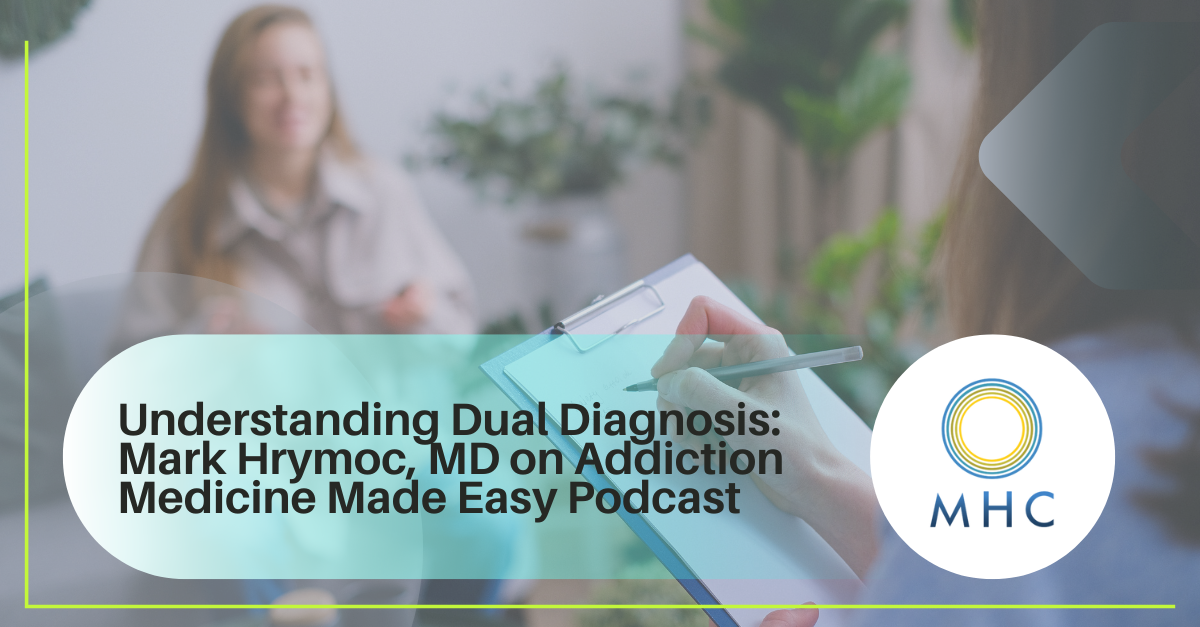Understanding Dual Diagnosis: Mark Hrymoc, MD on Addiction Medicine Made Easy
When mental health challenges and addiction overlap, recovery can become especially complex. In the podcast Addiction Medicine Made Easy, hosted by Casey Grover, MD, Mental Health Center’s co-founder and addiction psychiatrist Mark Hrymoc, MD joined the episode “Dual Diagnosis: Why Treating One Without the Other Never Works” to discuss why integrated care is essential for lasting healing. The Connection Between Mental Health and Addiction As Dr. Hrymoc explains, many individuals struggling with addiction are also managing underlying mental health conditions—often without realizing it. This overlap, known as dual diagnosis or co-occurring disorders, affects a large portion of people in treatment. In fact, an estimated 50–80% of patients with addiction also have PTSD or significant trauma histories, Dr. Hrymoc explained on the podcast episode. Many turn to substances not to seek euphoria, but as a form of self-medication to ease emotional pain, anxiety, or intrusive memories. Treating Both Conditions—Together Dr. Hrymoc …






